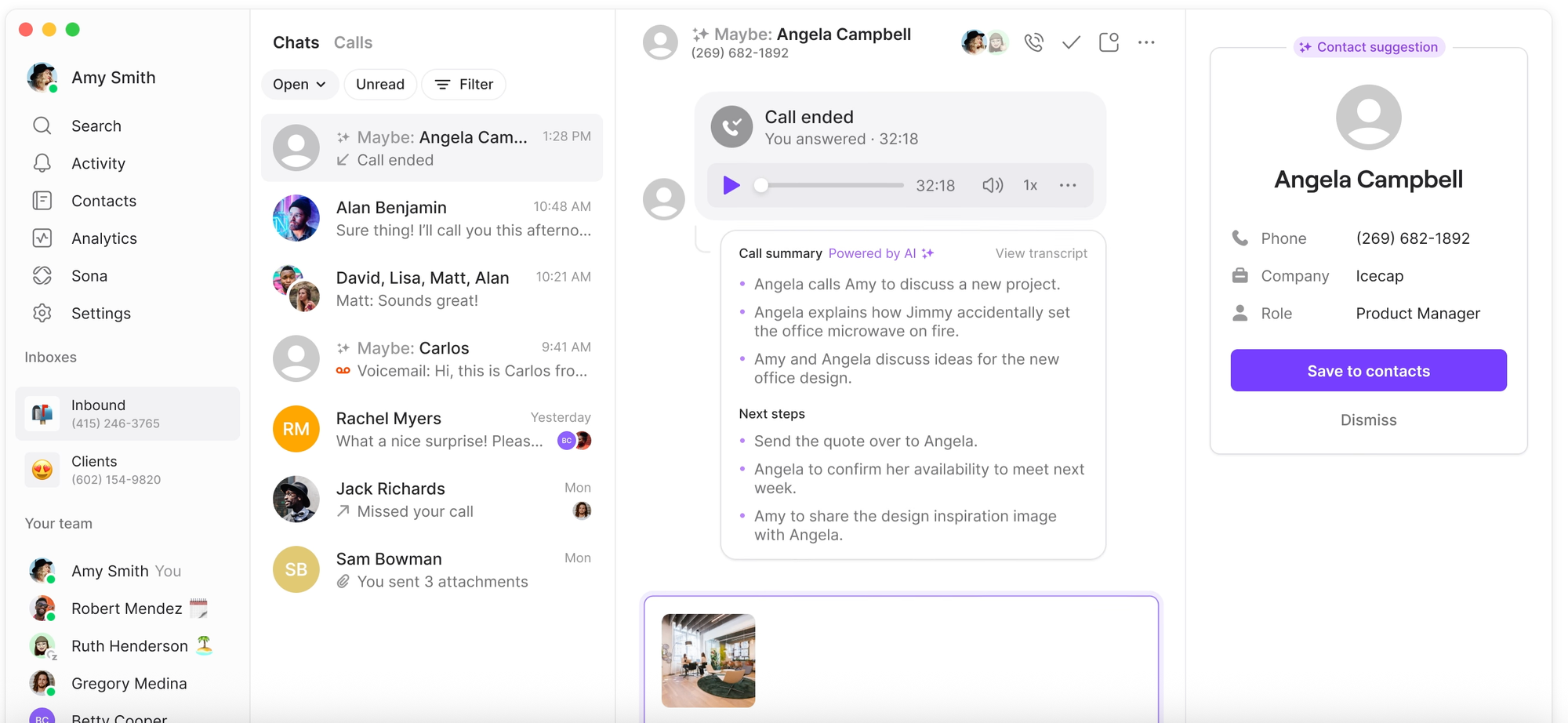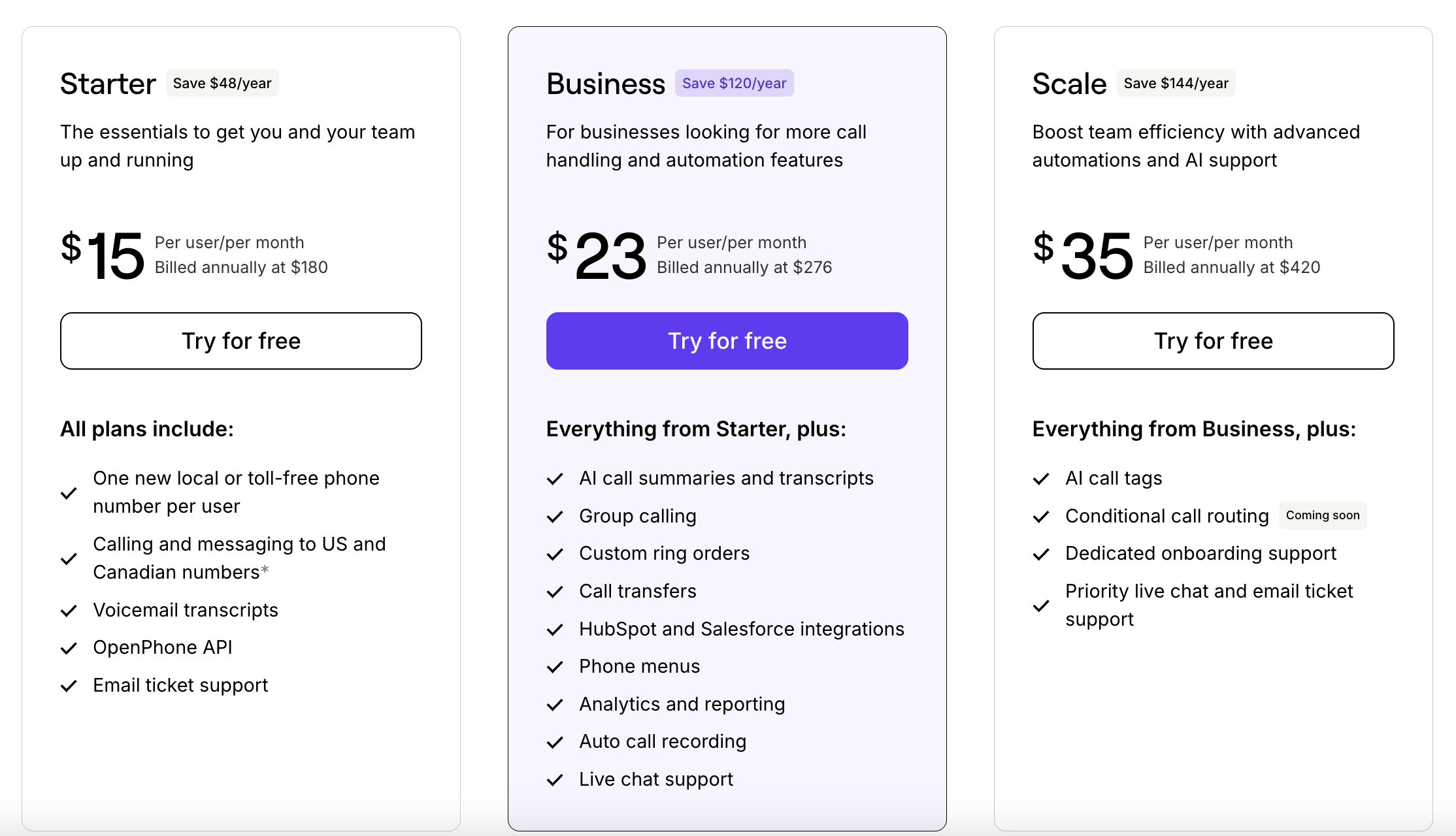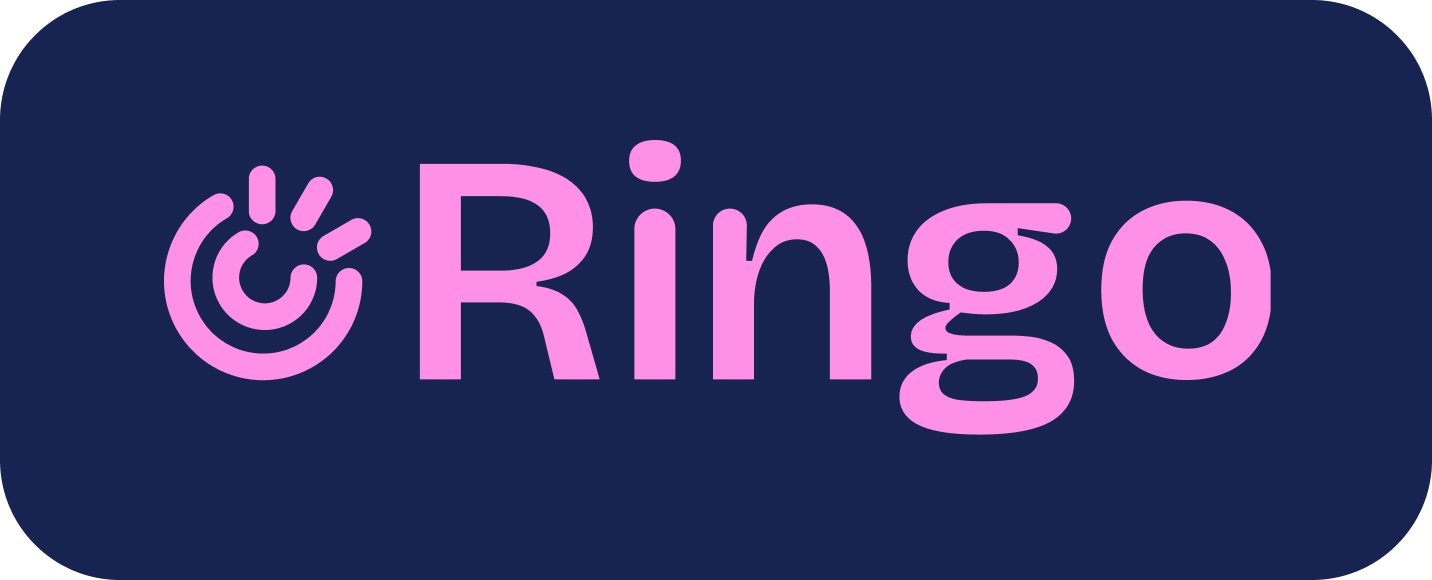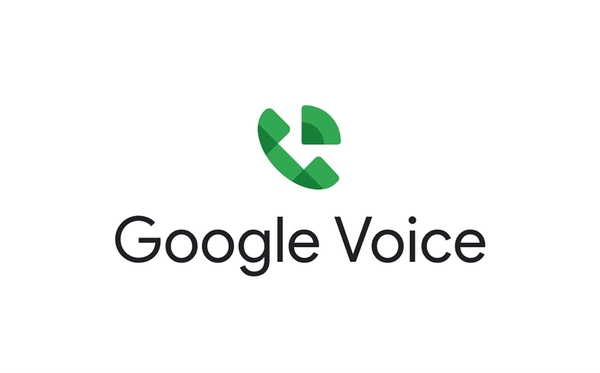OpenPhone Review: The Pros and Cons According to Customer Reviews

Need an honest OpenPhone review before you choose a business VoIP solution? You're not the only one. Poor communication costs U.S. businesses a staggering $1.2 trillion annually, underscoring the urgent need for more effective, streamlined communication systems. A reliable communication tool has become essential to keep your customer relationships strong.
OpenPhone has caught many people's attention as a possible VoIP solution, especially if you're a freelancer handling client calls or a small business team that needs shared numbers. But does OpenPhone actually deliver what you need? Reddit's community and other review platforms have shared plenty of feedback about the service, so let's take a closer look at what actual OpenPhone users say, including both good and bad experiences.
We'll get into its best features, OpenPhone pricing, and the way it works for different types of businesses. No marketing fluff here - just real-life insights that will help you decide if this business VoIP provider matches what you're after.
What Is OpenPhone and Who Is It For?
OpenPhone is a VoIP phone system that lets businesses handle calls, texts, and contacts in one shared space. It works over the internet and can be used on both computers and mobile devices. Features include shared phone numbers, voicemail transcription, call recording, and integrations with productivity tools like Slack and HubSpot. OpenPhone is often used by small teams and startups as an alternative to traditional phone systems.
Overview of OpenPhone's core offering
OpenPhone provides a virtual phone system, allowing users to keep personal and work communications separate without needing multiple devices. It works across desktop, mobile app, and web browsers, offering a cross-platform communication solution.
OpenPhone plans start at $15 per user per month (Starter plan), which includes one local or toll-free number per user, unlimited calls and texts to U.S. and Canadian numbers, and access to basic business features.
Key features include:
- Unlimited calling and messaging within the U.S. and Canada
- Shared phone numbers for team use (up to 10 users on the Standard plan)
- Voicemail transcription and call recording
- Custom business hours and auto-replies
- Phone menus (IVR) for call routing
- AI-generated call transcripts and summaries
OpenPhone also recently introduced Sona, an AI agent that can answer calls 24/7. It’s designed to help small teams manage incoming calls outside of business hours or when no one is available to pick up, reducing missed calls.
Target users: Freelancers, startups, and small businesses
OpenPhone caters to professionals who want a professional phone presence without complex enterprise features:
- Freelancers and self-employed professionals who need separate lines for work and personal calls while maintaining a professional presence.
- Startups that need adaptable communication tools as their business grows. Teams can easily add new members and features as the organization expands.
- Small businesses that benefit from shared customer communications. Teams see all conversation histories and stay updated about customer interactions.
How OpenPhone is different from traditional VoIP services
OpenPhone, just like many other business phone systems, is a VoIP (Voice Over IP), meaning it runs completely through a software application, unlike conventional landlines or desk-based systems.
The virtual phones need no hardware at all. You can use your existing devices, computers, tablets, or smartphones, which cuts down on original costs and maintenance. This softphone approach offers flexibility for distributed teams and remote workers.
OpenPhone also plays well with other business tools like HubSpot, Salesforce, and Slack, helping automate workflows and unify customer data.
Pricing starts at $15 per user per month (billed annually), with core features included. However, scaling with OpenPhone can get expensive, especially for teams adding multiple users or numbers. Their new AI feature, Sona, is also at an extra $49, something that businesses need to consider before adhering. That’s a key difference from systems like Ringo, which offer unlimited users for a flat base fee plus a fee per active conversation, particularly helpful for seasonal or growing teams who don’t want to be penalised for adding staff.
Another feature some businesses may miss with OpenPhone is SMS broadcasting, a quick, powerful way to send updates or promotions to multiple customers at once. Not all platforms offer this out of the box, and OpenPhone’s support for bulk messaging requires a Zapier integration, which could be a complicated workaround.
For modern, remote-friendly teams, OpenPhone covers the basics well. But if your business relies on seasonalities, team-wide access, and customer re-engagement via text, it's worth comparing other VoIP providers too.

Top Features That Forum Users Like
Users like specific OpenPhone features that solve everyday business communication problems. Their threads and reviews highlight three favorite feature sets that stand out among users.
Voicemail Transcription & AI Summaries
Users like specific OpenPhone features that solve everyday business communication problems. Their threads and reviews highlight three favorite feature sets that stand out among users.
Voicemail Transcription & AI Summaries
Customers frequently cite voicemail handling as a major benefit of OpenPhone, especially for staying organized and responsive on the go.
OpenPhone offers two tiers of transcription features:
- Standard Voicemail Transcription (Basic Plan):
Automatically transcribes voicemails word-for-word into readable text. It helps users review messages quickly without needing to listen to the audio. - AI-Powered Transcription + Summaries (Business Plan):
In addition to the full transcript, this version provides a smart summary of the message, highlighting the caller’s intent, tone, and any key action items.
We also love the AI features like call transcription, which have been really useful for our business. - Review on TrustPilot
This feature is especially useful for client-facing teams, support staff, and solo founders who juggle multiple responsibilities and rely on quick communication insights.
Other providers, such as Ringo, also offer call transcripts and AI features to assist business owners, so these are not exclusive to OpenPhone.
Shared numbers and team collaboration
Shared phone numbers rank high among OpenPhone's most popular features on Reddit and other review channels. The internal threading system stands out - team members can comment on calls, texts, or voicemails without customers seeing these discussions. This helps maintain a consistent customer message while teams work together behind the scenes.
Users highlight several other team features:
- Real-time typing indicators stop multiple teammates from answering the same customer
- Shared contact lists update automatically for everyone
- Custom ring orders let you choose which team members get calls first
- Call and message tracking helps with team coaching
It’s worth noting that OpenPhone isn’t the only VoIP solution offering voicemail transcription, shared numbers, or team collaboration features. Platforms like Ringo also provide these capabilities, so it’s important to compare tools closely to see which one aligns best with your team’s needs.
OpenPhone app reviews: iOS and Android experience
Users give positive feedback about OpenPhone's mobile experience and its consistent feel across devices. The app runs on iOS and Android phones plus Windows and Mac computers, making device switching smooth.
Some Reddit users mention mobile performance issues now and then. Call quality on mobile devices comes up as a common concern: "Call quality is terrible on mobile devices, whether you are on wifi or data. If on data, unless you have full bars don't bother answering the phone." Many users still like the overall mobile experience despite these issues.
The iOS app gets praise for its easy-to-use design. One user shared that "what I like best about OpenPhone is how simple and intuitive it is, everything from setup to daily use just works without needing a manual or IT support." Some users note bugs with scheduled texts not sending correctly.
Compared to services like Google Voice, users find OpenPhone's app more modern and business-oriented. Small businesses and freelancers appreciate managing communications across devices without buying extra hardware or paying traditional phone system costs. The mobile app's ability to handle both calls and SMS messaging in one place is particularly valued for its convenience.

OpenPhone Cons and Common Complaints
OpenPhone has its strong points, but users have reported several ongoing problems that could affect your experience. Forum discussions show recurring issues in many areas of the platform, from technical problems to service limits.
OpenPhone bugs and issues reported by users
Reddit users are especially critical of the bugs. Messages don't load as expected, attachments fail to show up, and sometimes the app won't load at all. The search feature in the Android app falls short too - users can't search SMS threads by phone number or keywords and open them properly.
Texts come in on the phone but they don’t on desktop Windows - Review on Reddit
For some businesses, this can be critical, certain bugs may halt operations entirely or disrupt essential workflows.
Call quality concerns
Call quality stands out as a common complaint. Users deal with "choppy or robotic sounding audio" because of connection issues. On top of that, some experience one-way audio where one person can't hear the other, and calls drop unexpectedly.
The service seems to work especially poorly on mobile devices. This can be complicated for service providers that fully rely on calls, like plumbers, electricians, moving companies, or real estate agents - businesses where missing or dropping a single call can mean losing a client.
Customer Service Complaints
Another recurring frustration among users is OpenPhone’s slow and limited customer support. The company offers no live chat for the Basic Plan or phone support, relying solely on email-based communication, which many users say is too slow for urgent issues. This becomes especially problematic when facing service interruptions, account problems, or number porting delays.
To their credit, OpenPhone’s team is active on Reddit and often responds directly to user concerns, which is appreciated by the community. However, relying on social media for support or ticket creation can sometimes take too long, especially in emergency situations where a business needs immediate help.
Pricing, Support, and Value for Money

Let's look at OpenPhone's pricing structure to see if this business phone system gives you good value for money. A closer look at the costs and support quality will show if it meets your communication needs.
Pricing tiers: Standard vs Premium
OpenPhone has three clear pricing tiers with different features:
The Starter plan costs $15 per user monthly (billed annually) or $19 month-to-month. You get one local or toll-free number per user, unlimited calling and messaging to US/Canadian numbers, voicemail transcripts, and simple integrations. The price is reasonable, but you won't get advanced routing features.
The Business plan runs $23 per user monthly (annually) or $33 month-to-month and adds valuable features: AI call summaries and transcripts, group calling capabilities, custom ring orders, call transfers, HubSpot/Salesforce integrations, analytics, and auto-call recording. Live chat support replaces email-only assistance.
Larger companies might prefer the Scale plan at $35 monthly per user (annually). This tier brings AI call tags, conditional call routing, dedicated onboarding, and priority support.
To help you even more, you can check our price comparison for several virtual phone systems here.
Final Verdict: Is OpenPhone Worth It, and Where Ringo Stands Out
OpenPhone delivers a polished, tech-forward business VoIP solution designed for modern teams and solo operators. It excels in shared team numbers, voicemail transcription, and third-party integrations, especially for startups and small businesses that value mobile functionality and need to separate work from personal lines. Features like AI summaries and CRM integrations give it a clear edge for more complex workflows.
However, it's not without its faults. User-reported bugs, call quality issues, especially on mobile, and slow customer support can frustrate busy professionals. Its pricing model, which scales per user, may also turn into a burden for growing or seasonal teams. Essential tools like SMS broadcasting aren’t native to the platform and require Zapier or workarounds, adding complexity and cost.
That’s where Ringo can stand out.
Ringo offers a leaner, simpler solution that prioritizes practicality and affordability. With a single shared number, collaborative inbox, and built-in SMS broadcasting, it’s particularly attractive for local service businesses, salons, real estate teams, and seasonal operations who need to re-engage customers regularly and don’t want to deal with user-based pricing. Ringo has a flat $10/month fee with unlimited users, plus you only pay per active conversation you are having, ensuring the pricing is fair.
In any case, the best way to decide is to try OpenPhone's 7-day free trial in your business setting. Getting hands-on experience will tell you more than any review about whether OpenPhone fits your communication needs.
FAQs
Q1. What are the main features of OpenPhone that users appreciate? OpenPhone offers call forwarding, voicemail transcription, shared phone numbers for team collaboration, and integrations with tools like Slack and HubSpot. Users particularly value the intuitive interface, affordable pricing for startups, and the ability to separate personal and business communications.
Q2. How does OpenPhone's pricing compare to other VoIP services? OpenPhone's pricing starts at $15 per user per month, which is considered affordable for small businesses and startups. This pricing includes essential features like unlimited calling and messaging to US and Canadian numbers, making it competitive compared to more expensive options like RingCentral or Aircall. However, businesses should consider the OpenPhone cost as they scale, as per-user pricing can add up quickly for growing teams.
Q3. What are some common complaints about OpenPhone? There have been mentions of missed calls due to app reliability issues, and some users find there's a learning curve when first adopting the system. Additionally, some have noted limitations in the mobile app's performance compared to the desktop version.
Q4. Is OpenPhone suitable for small businesses and freelancers? Yes, Yes, OpenPhone is designed to cater to freelancers, startups, and small businesses. It offers features like shared numbers and team collaboration tools that can help small operations appear more professional. The VoIP solution provides a budget-friendly option for those needing a virtual phone system with basic features. However, businesses with extensive international calling needs or those requiring complex PBX-like setups may need to consider alternatives.





